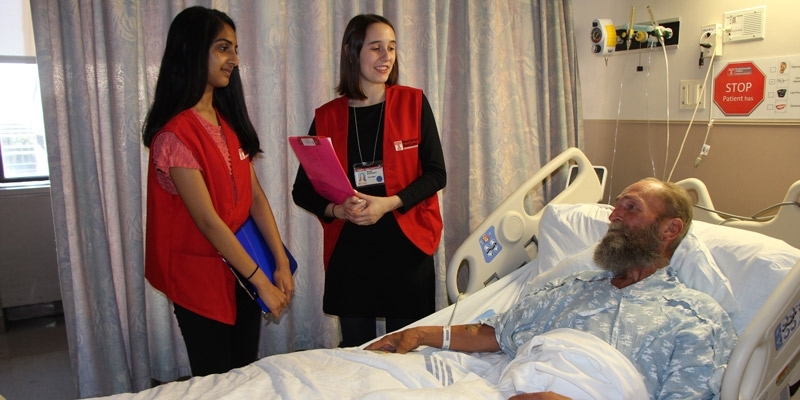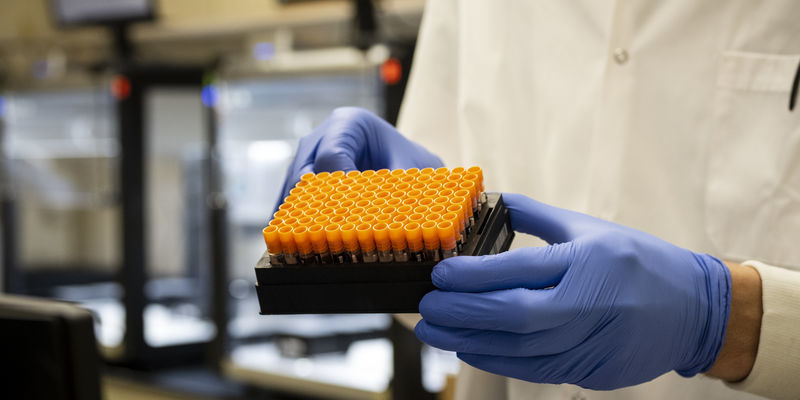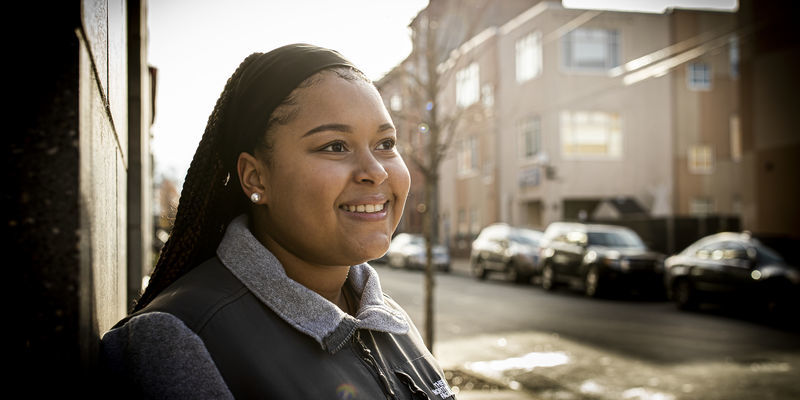Two students, one historic moment
Two students and At Your Service interns assisted in labelling COVID-19 vaccine syringes, which became an Instagram-worthy moment.
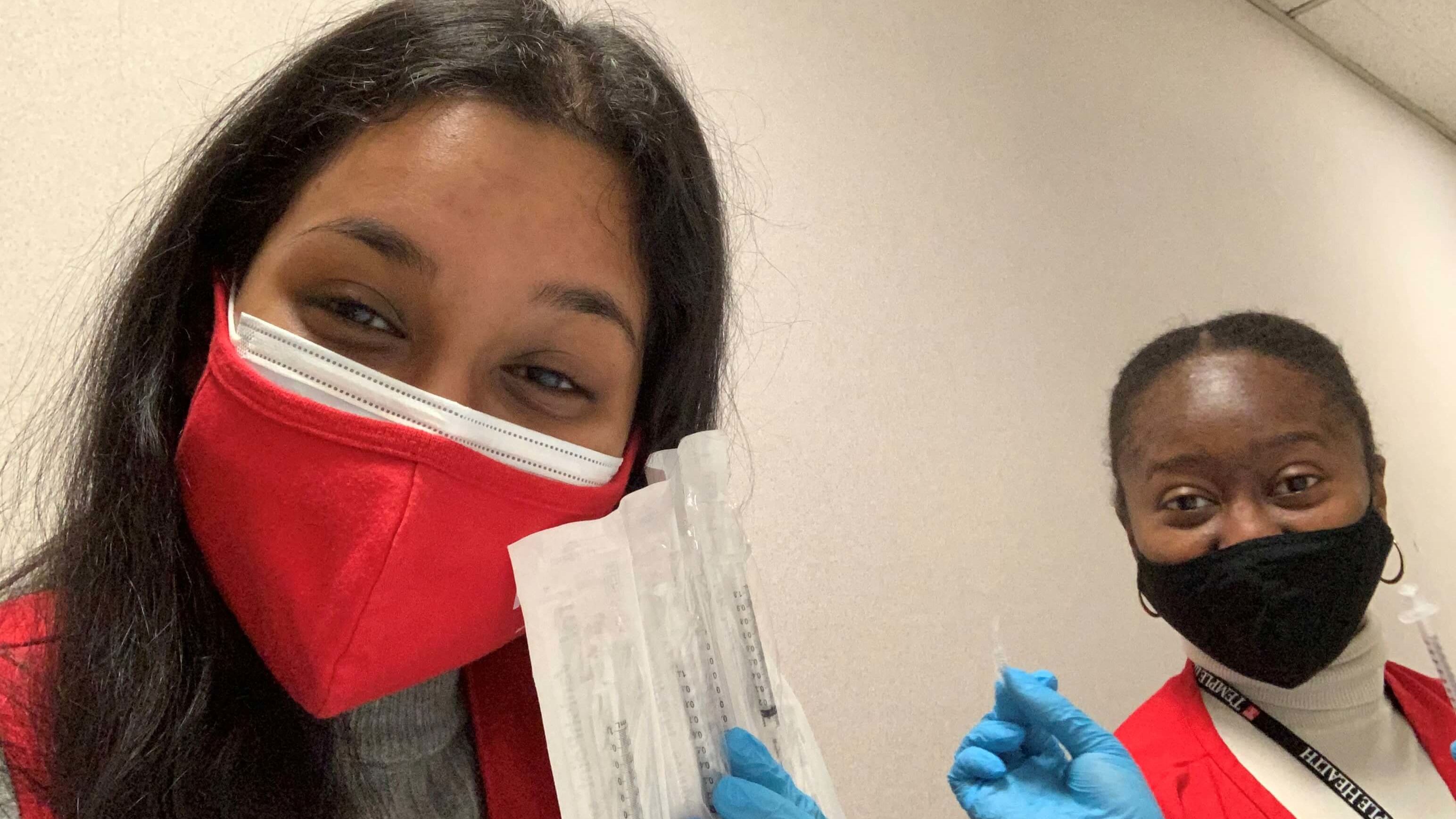
What seemed an unassuming start to the day resulted in a historic moment for two Temple University students and At Your Service interns. Biology major Moraine Kisenda, Class of 2021, and bioengineering major Isha Dev, Class of 2024, began their shift at Temple University Hospital’s COVID-19 vaccine clinic by signing in patients. But when the head nurse led them behind the staging area, the two volunteers felt the thrill of their impact in containing the pandemic.
Partnering with the Patient Experience Department, Temple University Hospital’s At Your Service program draws passionate volunteers because it is designed to provide interns with enriching experiences for hospital volunteering, patient interactions, and personal and professional development in the medical field. On this day, Kisenda and Dev felt directly connected to the resolution of the pandemic when they were put to the task of stickering dosage amounts on hundreds of COVID-19 vaccine syringes. In their excitement to make a difference, Dev recommended they take a picture together. After sending it to their supervisor, Rebecca Goldfarb Terry, the image was posted to Instagram and has garnered dozens of likes.
“It was exciting to provide this service for the nurses who are administering the vaccines,” said Kisenda. “What we were able to do is one small part of a historic event.”
Their work in the COVID-19 clinics doesn’t stop at syringes. These volunteers organize every step of the process leading up to getting the vaccine administered. Kisenda said the program adapted to the pandemic by creating even more opportunities for students to get involved, with the clinic being just a small part of the bigger picture.
Beyond the COVID clinic, volunteers focus on patient care by taking turns at various locations in the Temple Health campuses, including the Episcopal Campus and the Jeanes campus. A major factor that sets At Your Service apart from similar programs is the direct patient interactions, which require greater safety measures, but are ultimately more rewarding, said Dev. With family unable to visit due to COVID-19 restrictions, patients can feel dispirited while on the path to recovery.
“They can’t express their feelings, and so At Your Service lets us volunteers be there for patients, to be their support systems and to help get them past whatever obstacle they are facing,” Dev said.
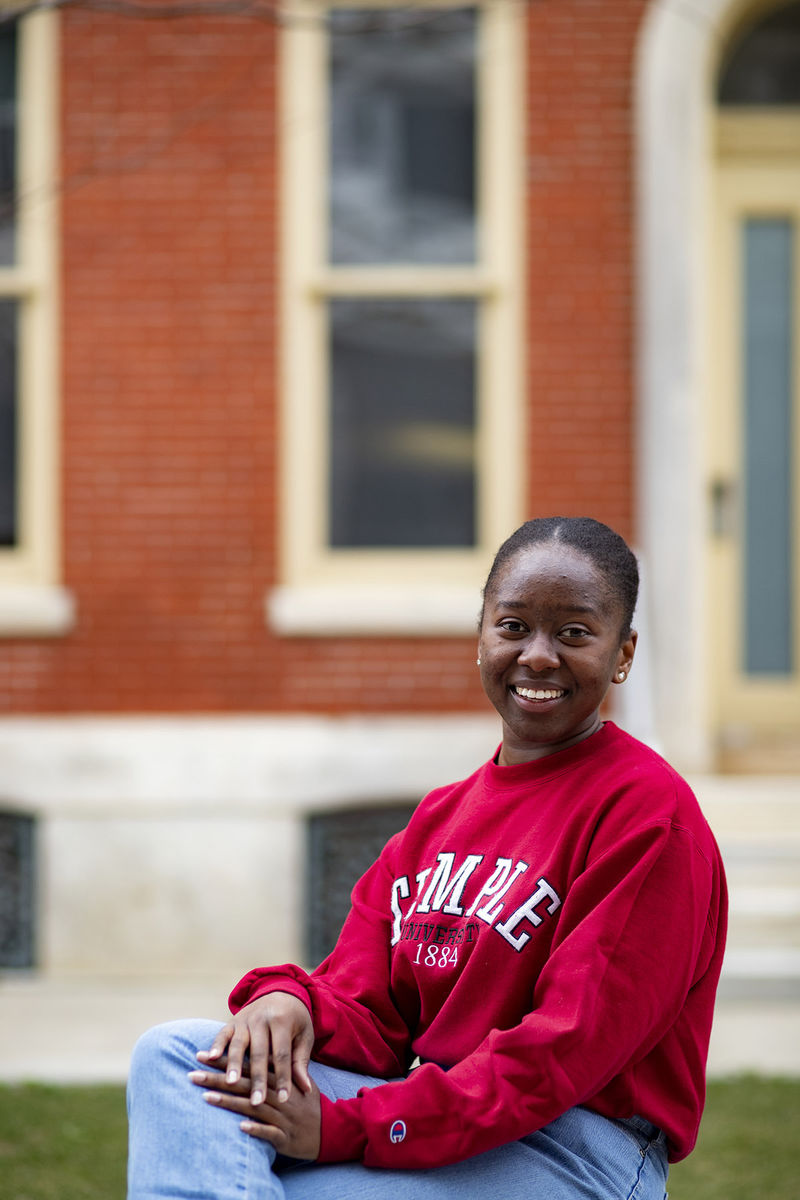
Moraine Kisenda is a senior who is volunteering with At Your Service. (Photo by Ryan S. Brandenberg)
Both students are getting life-changing experiences to set them on the course for the medical profession. Dev’s passion is understanding the mechanics behind the scenes of the medical field that aren’t visible to the average person. With an interest in biology, chemistry and mathematics, pursuing a bioengineering degree has opened the door to a variety of opportunities for her future path.
Kisenda took a special interest in becoming a physician out of a passion for science and as a result of grief. When her parents would receive word of deceased family members in the Democratic Republic of Congo, the cause of death was never explained. She knew science would be the foundation for understanding these diseases, how they occur, how they can be prevented and the culture differences involved.
“Every time I asked my parents what happened, they would say ‘We don’t know. They were sick. It just happened,’” said Kisenda. “It broke my heart and pushed me to want to pursue global health.”
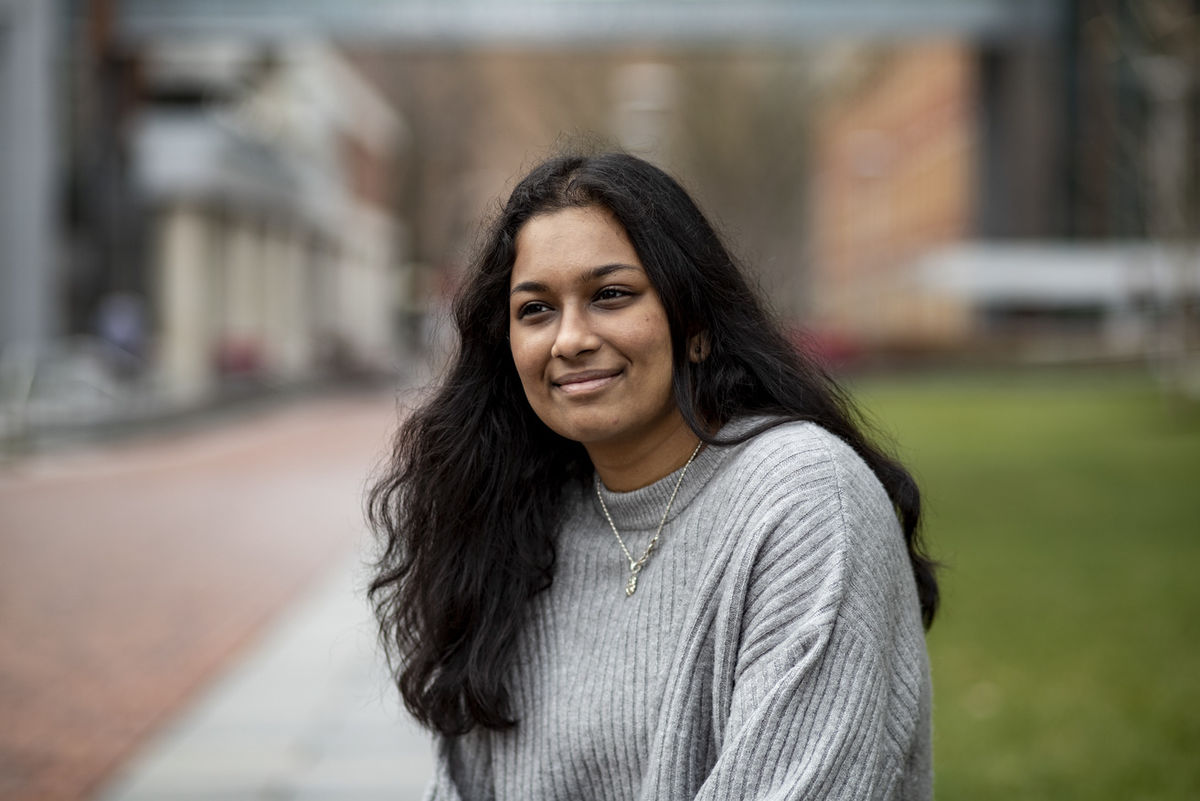
Isha Dev is a freshman who found a sense of community with At Your Service. (Photo by Ryan S. Brandenberg)
They both knew working with At Your Service would help them build the skills needed to pursue their chosen careers. By finding solutions for the various needs of patients, Dev said both her compassion and ability to problem-solve have improved: abilities that can be applied to any other field.
“Working in customer service, I’ve come to realize how important it is to recognize different people and their different experiences,” Dev said. “You won’t be able to access many learning opportunities if you’re not able to communicate effectively with people.”
Learning to be more confident in talking with people has been a focal point of Kisenda’s journey in this program. She considers the way this opportunity aligned with the pandemic to be a “blessing in disguise” because of the growth she has experienced in such a short span of time.
“One of the most important skills I’ve developed here is having the confidence to speak up, ask questions, and go above and beyond to give the utmost care to patients and utmost help to staff when needed,” said Kisenda. “It’s a privilege to learn about what patients and staff experience and go through, which prepares and enriches me for what I want to do in the future: becoming a physician.”
—Rayna Lewis
